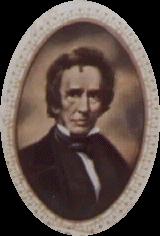
Walter Scott

Last night we had a Love Feast: It was opened by prayer, and psalms and hymns and spiritual songs. The sweetest brotherly feeling pervaded the assembly, which, by the way, was large, the house being crowded. A brother C.D. Hurlbut then addressed us on the subject of true love-or of that divine passion which is felt by a heart purified by the principles and privileges of the gospel of Christ-faith and forgiveness, or faith unfeigned and a good conscience. Another brother J. Cochran followed, and cited, as authority for the Feast, primitive custom and words of scripture. Prayers and praises were again offered to Him that sitteth upon the throne, and to the Lamb. The refreshment was introduced, and after thanks and praises to God through Jesus Christ, was distributed among the people. The end or intention of the Feast was carefully and distinctly stated by the presiding brother. The effects of a too didactic theology, the results upon professors in formality, coolness, and sometimes absolute coldness, of too precise and sectarian an explanation of the scriptures, are obvious in all the churches. Many are utterly ignorant both of the persons and names of their brethren. Most professors have only a few favorites, and upon these they expend all the blessings of their spiritual communion. They know no other; they seek to know no other; and it is to be regretted that the exact organization of our religious establishments everywhere, is too favorable to these feelings. Our Love-Feast was intended then to correct and counteract these unchristian results, and to extend, if possible, /91/ the knowledge of all to each member in the assembly. For this purpose the elders and officers of the institution, moved out of their places, and welked down the aisle saluting, and conversing with, every one on their way saint and sinner-Methodists, Presbyterians, Baptists, New Jerusalemites, &c. of all whom we met some ourselves, and consequently had personal assurance of their presence on this interesting occasion. The elders and officers were soon followed by the body of the disciples, who now crossed the meeting-house in every direction, saluting their brethren, and the strangers with all affection, and forming many new acquaintances both with the one and the other. The simple refreshment consisted of a bunch of raisins and a small confection of cake. Every body seemed to partake of it with gladness and singleness of heart, praising God, and rejoicing in the favour of one another. No scene, perhaps, could be more interesting. It was a great multitude of the followers of Christ moved upon by the command of their master that it was their duty to love one another. And surely if any brother who was rich, desired for charitable purposes to become acquainted with the poor, this was the time for bestowing gifts, and forming acquaintances. On such an occasion a wealthy brother might confer favours on many of the poor children of God, and none but his God know it.
The assembly was now called to order; and a brother, impressed perhaps by the multitudinous appearance of the scene which had just passed, addressed the whole from this scripture. 'And I beheld, and lo! a great multitude whom no man could number, of every nation, tribe, people and language stood before the throne of God and before the Lamb, clothed with white robes, and palms in their hands; and cried with a loud voice, saying, Salvation to our God who sitteth upon the throne, and unto the Lamb.' The great number of the saved, their variety, from all nations, &c., the noble station which they occupied in the presence of God, their robes of purity, their palms of victory, and their employment in praising God and the Lamb were briefly and successively touched, and the speaking concluded. Thanks and praises were again offered to God and unto the Lamb, when the assembly was dismissed.
Upon the whole it appeared to us that the meeting was well calculated to bring about the effect intended. Many new acquaintances were formed, the feelings were relaxed and generalized, the spirits of all seemed to be refreshed, and perhaps the bigotry and prejudice which distinguish us Christians in these last days were in many persons considerably abated. Not excepting our own brethren, I know not one connection in Christendom that is not defiled by a party spirit. No one assembly on earth dare look at itself and independently of the other assemblies of the same faith and order. When we speak of the Christians of a city we /92/ say the Presbyterian church in Pittsburgh, the Methodist church in Pittsburgh, the Baptist, the Covenanting, the Seceder church in Pittsburgh, and the Disciples' church in Pittsburgh; but who dare say as Paul would say, 'the church of God in Pittsburgh,' meaning all who in Pittsburgh call on the name of the Lord, 'both theirs and ours,' as Paul again would say? Better times, times when there will be one body and one spirit, are we hope, approaching.